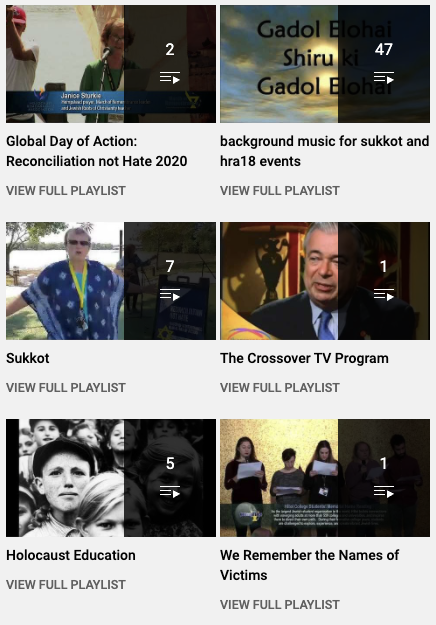May 8, 2025 – Dr. Susanna Kokkonen
Acharei Mot – Kedoshim 5785 (2025)
Leviticus 16:1-20:27 (Haftorah: Amos 9:7-15)
This week’s Torah portion has two names for its two parts.
Acharei Mot, the name of the Torah portion in Hebrew, means “after the death”. It refers to another Torah portion Shemini. Two of Aaron’s sons died because of the profane, unauthorized fire they had offered. This week’s portion Acharei Mot contains different warnings related to approaching God, offering sacrifices and where the specific sacrifices were to be offered.
Kedoshim means “those who are holy”.
“Be holy because, I, the Lord, your God, am holy.” (Leviticus 19:2, NIV)
Various commandments are given after this verse. Clearly it seems to indicate that following God’s commandments would be a way to holiness. In other words, there is a need for practical instructions to achieve the goal that has been given at the beginning of the portion.
What seems interesting to me is that although several of these commandments are related to man’s relationship to God, as for example in sacrifice and keeping the Shabbat, several of them relate to relationships between people. This shows that both relationships are important. It is supremely important to serve God in the described manner, but it is also vital to serve one’s fellow men and to have respect for them and their needs.
Clearly, if both elements are lacking, there is a problem. But there is also an argument to be made that serving God is no good in isolation. During a crisis, such as the Holocaust was, understanding this aspect was vital. As we know, some individuals were able to master their fear and come to the aid of the persecuted.
The Land of Israel
This week’s Haftorah is a text from Prophet Amos. The text relates to the past in that it recounts how miraculously God took the Hebrew slaves out of Egypt and delivered them to their own land. Sadly, the nation went after the gods of other nations and adopted some of their practices.
Referring to the time of the prophecy, the land was already divided in the Southern (Judah) and Northern (Israel) kingdoms. But, according to the prophet, the Jewish people would lose the Northern Kingdom altogether and even the southern part would go in exile.
There is a promise however:
“Yet I will not totally destroy the descendants of Jacob,” declares the Lord.” (Amos 9:8, NIV)
Eventually people would be brought back to their land and God would raise them up and they would live in their own land.
“I will restore David’s fallen shelter— I will repair its broken walls and restore its ruins— and will rebuild it as it used to be…” (Amos 9:11, NIV)
The very last verse of the Torah portion’s prophetic part refers, in my view, to times we are living it. It is God’s promise that once he brings Israel back to its own land they will never be uprooted again. Currently, we are seeing an increase in threats in the Middle East. We see too the hatred that world feels toward the Jewish people and Israel. This verse is a promise we need to keep in mind.
“I will plant Israel in their own land, never again to be uprooted from the land I have given them,” says the Lord your God.” (Amos 9:15 NIV)
On May 14, 1948, that the State of Israel was declared as an independent state. Following the Declaration of Independence a terrifying war started. Several Arab armies attacked the fledgling state. Even many Holocaust survivors gave their lives for the independence of their old and new homeland, Eretz Israel and Medinat Israel.
Faith was needed. May this verse from Amos encourage everyone who worries about Israel now.

“Arrival Of The Good Samaritan At The Inn” Colored Wood Engraving after Gustave Dore
Neighbors
I want to come back to the Torah portion and to Leviticus 19 specifically. Because here there is a specific and well-known verse. It has been argued that this is the most central verse of the entire Torah. This argument was made by rabbis, and it was also made by Jesus. So, what is this sentence?
It is a commandment which certainly refers to relations between men:
“Love your neighbor as yourself.” (Lev. 19:18, NIV)
When Jesus was asked what the greatest commandment was, he referred to loving God first and then loving man. The commandment he quoted was from this Torah portion:
“…The second is this: Love your neighbor as yourself.” (Mark 12:31, NIV)
If we think about how this sentence relates to the time of the Holocaust, we need to recall the words of one of the most famous Holocaust survivors. This Holocaust survivor was the author Elie Wiesel (1928-2016), also a Nobel Peace Laureate. Elie Wiesel symbolically wanted to add a commandment to the Bible following the Holocaust.
Wiesel’s profound thought is described in a newspaper article:
”…A duty to his neighbor. To the stranger, the stranger that he once was. He called it his 11th commandment: “Thou shalt not stand idly by… You must speak up. You must defend. You must tell the victims… You are not alone, somebody cares.”
*For an explanation of the terms see the first Pearls of The Torah Portion Blog.
| Coral and crystal cannot be mentioned, and the striving for wisdom [is more precious] than pearls. | רָאמ֣וֹת וְ֖גָבִישׁ לֹ֣א יִזָּכֵ֑ר וּמֶ֥שֶׁךְ חָ֜כְמָ֗ה מִפְּנִינִֽים: |
Job 28:18 (NKJV)
Again, the kingdom of heaven is like a merchant seeking beautiful pearls, who, when he had found one pearl of great price, went and sold all that he had and bought it.
Matthew 13:45-46 (NKJV)
Torah Scrolls were attacked and desecrated during the Holocaust. The enduring images of the Kristallnacht (November 9-10,1938) are those of synagogues on fire and Torah Scrolls burning. Some of these desecrated Torah Scrolls disappeared, others were buried. Some were lovingly rescued and are on display in museums in various locations.


